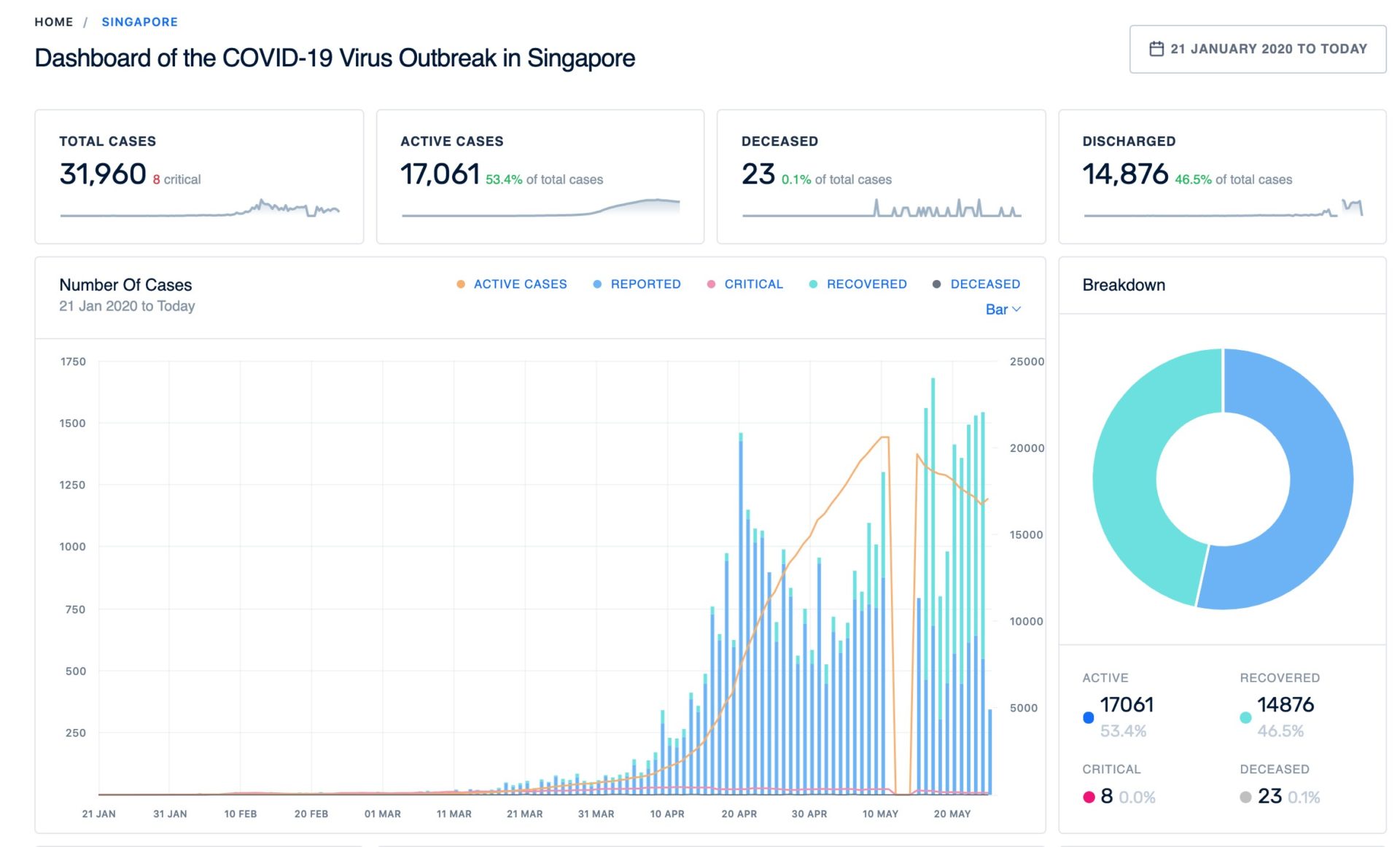The outbreak of COVID-19 showed how weak humans are in the event of a global pandemic. We couldn’t help but turn to technology advancements in our battle against coronavirus. Obviously, we haven’t got the outcomes we expected, but we are making the best possible use of technologies like Artificial Intelligence, Big Data, and the Internet of Things.
So, how are we currently using Big Data to manage the disease? Among the most meaningful solutions is the possibility to globally monitor the coronavirus toll in real-time, make predictions, track social distancing. What lesson did we learn? Surely, we saw that humanity had gained a particular level of technological development. However, this level is not enough to easily overcome the challenges without sacrifice.
Today, Big Data technology is used in many ways: to monitor the spread of disease, to read the temperature from digital thermometers, to collect mobile data according to geo-location, and to track whether people stay at home. Although there are so many benefits of using Big Data, a great number of people are worried about their data privacy. Please, keep calm – most of the data is typically anonymized and gathered in big categories or groups. Nobody would collect your data without your consent.
Helping Collect Coronavirus-Related Location Data Sets
The collection of mobile data about diseases’ spread is not new. In 2007, with the spread of malaria on Zanzibar, the World Health Organization initiated programs to eliminate the outbreak. The mobile operator Vodafone together with researchers, started gathering mobile data from the locations where malaria has been documented.
Today, the geodata is actively harnessed to monitor COVID-19 in the UK, Norway, Belgium, Italy, Portugal, and other countries of the world. Telecom companies are creating heatmaps showing how people follow the quarantine rules and what effects precaution has on the spread of disease.
Advanced Analytics Is Used to Monitor and Make Predictions on COVID-19
Data science technologies help visualize all the critical information associated with the disease outbreak via heatmaps, charts, graphics. Visualized data allows analyzing data more simply. In turn, predictive analytics is applied to make more precise predictions on local and global levels.
For example, almost everybody is aware of the Gisanddata platform that displays global information about coronavirus in general, and each country data in particular. However, some platforms track real-time data on the local level. For example, the Covid-19 SG platform shows actual information about active cases, reported, recovered, critical, and other COVID-based data in Singapore.
 Screenshot: Covid19 SG
Screenshot: Covid19 SG
The usage of data nowadays lays a strong foundation for better analysis, predictions, and planning in the future. Once it ends, researchers and scientists will be able to analyze all the global and local data we have got.
Cloud Computing Helps Businesses and Employees Thrive in These Difficult Times
The availability of many cloud-based solutions on the market helped lots of small to large businesses overcome the challenges associated with the lockdown. Thanks to the benefits of using company task management software and other remote work solutions, millions of people were able to continue working at home.
Cloud-powered software provides a wide range of advantages. These systems can be reached from anywhere and at any time. Due to this property, your employees can reply to customer requests immediately from any device. Surely, such customer relationship management enhances the quality of services, customer satisfaction, and the company’s revenue, consequently.
Setting Trends and Drives Intelligent Planning in the Future
Is life in quarantine a new normal? We never know what’s happening next. By implementing Big Data, businesses can gather valuable insights into their consumers’ behavior and historical data. Why do you need all that? With such information, you can build new marketing strategies and plan your sales according to buyers’ preferences, the world’s economic situation, associated conditions, or restrictions.
Every business has experienced the challenges caused by the lockdown. Many brands, companies, stores had to rethink their manufacturing, distribution, selling procedures to comply with the new rules. If you collect big volumes of various data, you can quickly turn it into valuable information to create personalized offers, products, and services. What you need is just professional IT consulting to choose the appropriate Big Data solution for your type of business and industry.
Final Words
Coronavirus will obviously become a part of any business strategy. It affects our lives, work, communication significantly. By organizing large scopes of data, the world can control the situation in real-time, monitor the outbreak, make predictions and decisions driven by accurate data. The virus has impacted the way we think about our future and becomes a driving force for digital transformation and innovation. Every business and every person should now take into account the new reality and consider how they can leverage the benefits technology gives us.
Irina Kravchenko is a content writer for Diceus, a technology partner for developing enterprise solutions. She is passionate in her belief that useful content is of great importance. Irina writes mostly about software development and marketing topics.
Coronavirus stock photo by creativeneko/Shutterstock







